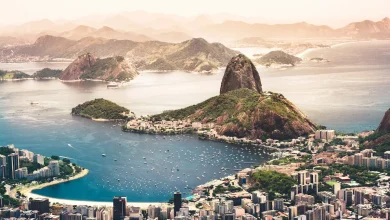Is It Safe To Holiday In Russia?
Many people find Russia a fascinating destination, thanks to its rich culture, beautiful landscapes and historic cities such as Moscow and St. Petersburg. Many people ask Is it safe To Holiday In Russia? Yes, Russia is still a safe and popular destination for adventurers, history buffs, and those who love the Kremlin.
Many prospective travellers are concerned about the safety of Russia, due to its vast geography and complicated political landscape. It is important to ask this question because safety concerns vary depending on the location and time of travel. Geopolitical tensions and regional differences can influence the situation, as well as factors such as language barriers, travel logistics and unfamiliar cultural practices. This guide will explore different aspects of travelling safely in Russia. From understanding regional differences in safety to addressing practical concerns like healthcare, transportation, or communication.

How to Travel Safely around Russia?
To travel safely in Russia, you need to combine awareness, planning, and making smart decisions. Plan your route and familiarise yourself with the area. Avoid going to poorly lit or remote locations after dark. Choose reputable transport options, such as taxis, ride-hailing services or well-connected public transportation systems in large cities like Moscow and St. Petersburg. You should be aware of the local driving style and road rules if you are driving yourself. Russian roads can be busy, and you may not know how to drive.
It is also important to stay informed. Watch local news and weather reports, because conditions can quickly change in Russia, especially in the rural and northern regions. Consider downloading trusted navigation apps that will help you navigate and avoid dangerous areas. Also, consider having a translation application handy to improve communication. Be aware of local laws and customs, which can differ from region to region in Russia. Also, carry copies of important documents with you for emergencies.
Practice general safety practices. Keep your belongings safe, avoid drinking alcohol in public and learn some basic Russian phrases so you can navigate with more confidence. Combining awareness and practical planning will allow you to enjoy Russia’s rich cultural heritage, vast landscapes and historic cities without stress.
Here are the Safest Places to Visit in Russia
While certain parts of Russia may require extra caution for tourists, most destinations are safe and welcoming, especially its most popular cultural, historical and natural landmarks. These places are not only beautiful and rich in history, but they are also in areas where tourists can feel safe if they follow the standard safety precautions.
- Red Square & Kremlin, Moscow – Located in the heart of Russia’s Capital, the Red Square is home to the colourful domes and Lenin’s Mausoleum as well as the Kremlin Complex with its museums, palaces and government buildings.
- St.Isaac’s Cathedral, St. Petersburg – Easily recognised by its golden dome and stunning mosaics within, this cathedral also offers sweeping views from its colonnade.
- Bolshoi Theatre, Moscow– This legendary opera and dance theatre is a must for lovers of art and culture. It offers stunning performances in a beautifully restored historical venue.
- Trans-Siberian Railway– The world’s longest rail line, stretching from Moscow to Vladivostok, offers an unforgettable journey through vast landscapes and small villages.
- Lake Baikal– Lake Baikal is the deepest freshwater lake on Earth. It’s known for its rare wildlife and stunning hiking trails.
- Catherine Palace. This Baroque masterpiece is located just outside St. Petersburg and houses the Amber Room, a world-famous attraction. It also boasts expansive landscaped gardens.
- Hermitage Museum, St. Petersburg– One of the most important and prestigious museums in the World, with masterpieces by Da Vinci and Rembrandt.
- Peterhof Palace, St. Petersburg. This lavish estate, often called “Russia’s Versailles,” is famed for the fountains, manicured garden, and lavish royal interiors.
- Golden Ring Cities– Picture-perfect historic towns such as Suzdal or Vladimir are full of onion-domed churches, monasteries and traditional Russian architecture.
- Sochi and Black Sea Coast– Sochi is known for its mild climate and combines beach adventures with mountain adventures. It remains a popular summer and winter destination.

Places to Avoid in Russia
Many governments, such as those in the United States and United Kingdom, Australia, Singapore and Canada, advise strongly against travel to Russia right now. It is vital to know which areas are particularly dangerous for foreigners if you have to go.
The North Caucasus region, including Chechnya, Dagestan, Ingushetia, North Ossetia, Stavropol, Karachayevo-Cherkessiya, and Kabardino-Balkariya, should be avoided due to ongoing unrest, criminal activity, and the targeting of foreigners for kidnapping or ransom. U.S. citizens are at risk of hostility in Chechnya. The U.S. Government prohibits their personnel from travelling there and offers no emergency assistance. Mt. Elbrus is also located in this region and falls under the safety advisory.
The same is true for travel to Crimea, which is a Russian-occupied part of Ukraine. There are no consular services available there, and many foreigners cannot get visas. Visitors should prepare themselves for cultural differences, such as the customs surrounding footwear inside and interpersonal interactions. They should also learn some basic Russian phrases before arrival. Navigation and communication can be more difficult if you don’t have any language skills.
How to Bring Money into Russia?
Visa and Mastercard cards issued outside Russia will no longer work in Russia as of spring 2022. Chinese UnionPay issued by foreign banks are accepted in most places. Cash is the best option for short-term trips. You can use cash to pay for your accommodation, daily expenses, and transportation without having to worry about restrictions on credit cards.
Travellers must also be aware of some regulations. As part of the sanctions imposed after the Ukraine conflict, the European Union has banned euro banknotes from entering Russia through EU borders. If you are entering Russia from an EU member state, you will not be able to bring euros across the border. This restriction does not apply to those who enter Russia from non-EU nations such as Turkey and the United Arab Emirates. Russia does not even ban the importation of euros. Travellers can carry up to USD 10,000 or equivalent in cash, without having to declare it.
Opening a Russian account is a good idea for those who plan to stay longer in Russia. It allows them to use their cards and electronic payments with ease. Many exchange offices offer competitive rates for currency exchange. Bring only undamaged, clean bills. Russian banks and exchange counters will reject any notes that are damaged or marked.

Registration and Accommodation in Russia
Travellers are now forced to rely on alternative local options for short-term accommodation, as Western platforms such as Airbnb and Booking.com do not operate in Russia. Booking websites like Ostrovok.ru, Sutochno.ru, and others offer hotels, guesthouses, and apartments across the country. Some travellers choose to book directly with hotels, hostels or other accommodations. Many of these allow cash payment upon arrival, which is convenient for those who have local currency.
If you are staying in a hotel, registration is simple. You won’t have to do anything extra because the staff will handle all the registrations with the authorities. If you are staying in a private residence, such as an apartment rented or a house with friends, for several days, then you will be responsible for your registration. You can do this at the local branch of Moi Documenti, an official government service centre. It’s important to ensure that your registration is completed, as this is a requirement for all foreign visitors in Russia.
What to look for when choosing a safe accommodation in Russia
When looking for safe accommodations in Russia, it is important to pay attention to the location, security features, and verified customer feedback. Choose reputable hotels and licensed rentals located in well-lit central districts, such as Tverskoy or Nevsky Prospekt. Not only do these areas offer convenience and safety, but they also provide easy access to attractions and public transport. Search for properties that offer 24-hour reception and security cameras. Booking with a reliable platform like Yandex Travel or Ostrovok can ensure the legitimacy of your booking and give you access to reviews that are trustworthy.
Safety Tips for Accommodation
-
Location: Stay centrally located, well-lit, and in busy neighbourhoods.
-
Security Select properties that have a 24-hour staff, CCTV coverage and secure locks.
-
Booking: Use reliable platforms to confirm your reservations directly with the hotel.
-
Reviews: Read previous guest feedback about safety and neighbourhood conditions.
Avoid staying in areas that are isolated or poorly illuminated if you can. These places often carry higher risks. Safety should always take precedence over cost, particularly if you are travelling alone or arriving late in the evening.

Russia offers many vibrant and safe destinations that are far away from the conflict. Moscow and St. Petersburg are ideal travel destinations because they offer rich cultural experiences and historic attractions. They also have a friendly atmosphere and welcome visitors. Avoiding regions like Rostov or Krasnodar, where military activity could impact safety, and focusing instead on well-established tourism areas will allow travellers to explore Russia in confidence. Planning, being informed and selecting safe routes are all ways to ensure that you have a pleasant and relaxing trip in this fascinating and culturally rich country.
Conclusion:
Even with the caution that is required due to the current geopolitical climate, a visit to Russia can still be safe and enjoyable. Moscow, St. Petersburg and other major cities are safe and friendly, providing a rich cultural experience. Making smart decisions is key. Avoiding conflict zones and border areas, choosing reputable transport, and taking practical security measures are all important. To ensure a smooth trip, it is important to stay informed on local news, observe cultural norms and plan your route ahead of time. Russians are friendly and will help you when they can. While smiling less than other countries is not a sign of unfriendliness, it shouldn’t be misinterpreted as such. Visitors can enjoy Russia’s historic cities, vast landscapes and warm hospitality by being polite and patient with the language barriers.




